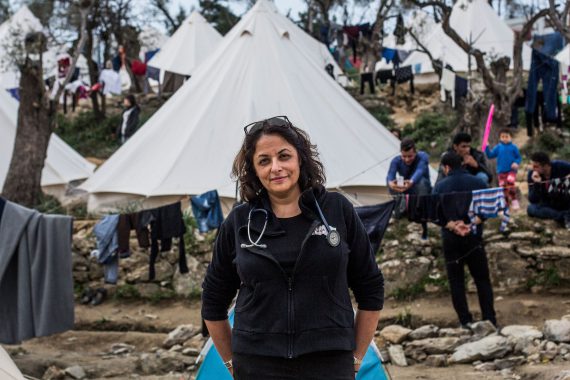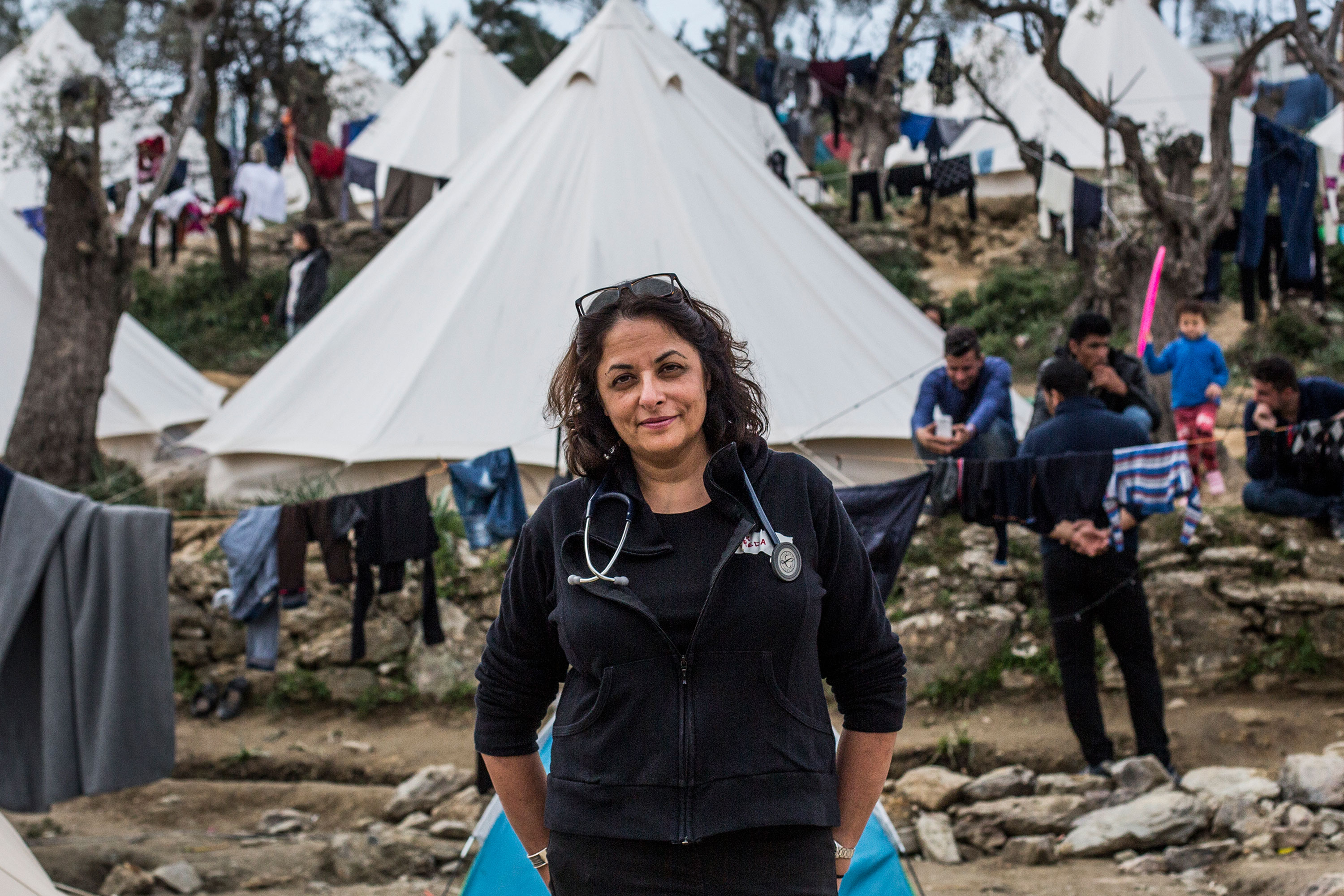A GP on the frontline of the refugee crisis


Profile: Dr Freda Bhatti
Role GP Partner in Great Bentley Surgery, Colchester, Essex and volunteer at Moria camp in Lesvos, Greece.
Time worked I spent a week in Lesvos in November 2015 with a practice nurse and another GP. My second trip was for a week in February, with another GP, a nurse, a physiotherapist and a surgeon.
Why did you go?
A GP colleague had visited a refugee camp in Lesvos last October and his experience inspired me. Therefore, I registered with Health Point Foundation (HPF), a small medical NGO set up by a UK GP, Dr Hadia Aslam. For both my trips to Lesvos we crowdfunded to buy blankets, food and essential supplies for the refugees. We self-funded our own expenses like flights and hotels.
What was the camp like?
There was a central compound which was heavily guarded by Greek police where refugees had to register with Frontex, the EU border control, before they could continue their journey further into Europe. Inside the compound there were four dormitory-like structures where some refugees, mainly vulnerable families and the elderly, could sleep overnight. However there was not enough room for everyone so they also camped out in large tents in an olive grove known as Afghan hill where HPF was based, offering 24-hour healthcare from a large tent which we called The Barn.
There were very few facilities for the refugees. This was a transit camp so the expectation was that once people registered they would move on. But registration could take anything from two hours to four days so refugees had to wait and queue.
What was the average day like?
The doctors worked on a shift system to provide 24-hour care. Depending on the number of doctors available, shifts could be 8 or 12 hours long. Ideally, each shift had two or three doctors, two nurses and translators for Farsi, Arabic and Urdu, though this depended on the numbers volunteering at any one time. Everyone shared the day and night shifts fairly. We either stayed in the tent, treating the constant flow of refugees who came to us with medical problems or went out in pairs on ‘outreach trips’, walking round the tents to ask people if they needed medical help. These were people who didn’t feel safe leaving the tent or didn’t want to risk losing their place in the queue by coming to the medical tent. GPs and A&E doctors were probably the most useful specialities as we were confident in dealing with the variety of complaints, but all medics were needed as long as they are willing to work in a team and step out of the comfort zone of their speciality.
What conditions did you treat?
We treated lots of minor conditions, coughs, colds, sore throats, scabies, febrile children and minor lacerations, but also more serious illnesses: pneumonia, sepsis, hypothermia, diabetic ketoacidosis and injuries from torture. We were well-stocked in the medical tent with donated medication and equipment so could treat illnesses effectively. But there was no opportunity for investigations such as laboratory blood tests or chest X-rays so we relied on our clinical instinct.
We also saw pregnant women who had not felt foetal movements and breast-feeding mothers whose milk had diminished both through stress. We were able to listen to foetal heart rate with a sonicaid and rehydrate lactating mothers and encourage continued breastfeeding or supply babies with bottled milk. But there was no boiling water or sterilisation facilities so the risk to the baby was high.
We had elderly patients who had lost all their medications and patients of all ages with trench foot and frost bite. There was access to a local hospital but many refugees refused to go as they fear losing their place in registration queue, or did not trust the authorities and felt safer in the camp with their families.
A lot of what we did was not medical, but humanitarian. We handed out blankets, fruit, nuts, water and hygiene packs to those that visited the medical tent.
What was the hardest thing about working in the camp?
The stories. The reasons they have fled their homes and what they have seen and often lost in their journey to Lesvos is shocking. Witnessing the emotional trauma is far harder than treating the physical ailments. There is hope initially – they have reached Europe. Then as they slowly realise that the borders are closing, their journey is only to get harder, hostile and uncertain, you see utter despair in their eyes.
Moria camp has now become a detention centre, but HPF has moved to Idomeni on the Macedonian border, where they are still looking for help.
If you wish to volunteer for HPF (now based in Idomeni) contact: http://www.healthpointfoundation.org/register-here
To register with Greek Medical association, go here: www.pvaigaiou.gov.gr
Pulse October survey
Take our July 2025 survey to potentially win £1.000 worth of tokens











